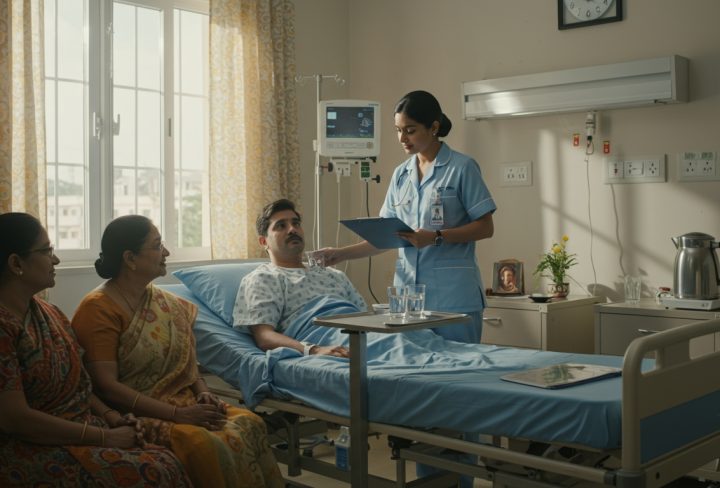Introduction
General anesthesia complications can worry many people before surgery. One of the most common issues is postoperative nausea and vomiting (PONV). This means feeling sick or throwing up after waking up from anesthesia. In fact, the risks of general anesthesia include PONV, which can affect recovery. Many patients search for ways to prevent postoperative nausea and vomiting after anesthesia. Understanding how to prevent PONV can help you feel more prepared and less anxious. According to the CDC and peer-reviewed journals, knowing what to expect is the first step toward a smoother recovery.
What Is General Anesthesia?
General anesthesia is a type of medicine that puts you into a deep sleep during surgery. While you are asleep, you do not feel pain or remember the procedure. Doctors use general anesthesia for many surgeries, both big and small. It is given through a mask or an IV. Although it is safe for most people, there are some risks of general anesthesia. These risks can include breathing problems, allergic reactions, and PONV. Still, doctors watch you closely to keep you safe during the whole process.
Common Complications: Spotlight on Postoperative Nausea and Vomiting
After surgery, some people may have side effects from anesthesia. One of the most common is postoperative nausea and vomiting (PONV). This means you may feel sick to your stomach or vomit after waking up. PONV can happen within a few hours or even a day after surgery. Although it is not usually dangerous, it can make recovery harder. Other general anesthesia complications may include sore throat, confusion, or muscle aches. However, PONV is the most common and bothersome for many patients.
Symptoms and Causes of PONV
PONV stands for postoperative nausea and vomiting. The main symptoms are:
But what causes PONV? Several things can trigger it:
For example, some people are more sensitive to anesthesia drugs. Others may react to pain medicines given after surgery. Even the way your body handles anesthesia can play a role.
Diagnosis and Risk Factors
Doctors can often spot PONV by asking about your symptoms. They may also check your medical history. Some people are more likely to get PONV. Risk factors include:
In the United States, about 20-30% of patients may experience PONV. However, your doctor can help lower your risk by choosing the right medicines and care plan.
Treatment and Management Options
If you develop PONV, there are several ways to manage it. Doctors may use:
Sometimes, more than one treatment is needed. For example, your doctor may give you medicine before, during, or after surgery to help prevent or treat PONV. According to the World Health Organization, early treatment can make recovery easier.
Prevention Tips and Lifestyle Guidance
Although you cannot always avoid PONV, you can lower your risk. Here are some helpful tips:
In addition, staying hydrated and following your care team’s advice can help. If you have questions about how to prevent PONV, talk to your doctor before surgery.
When to Seek Medical Help
Most cases of PONV are mild and go away on their own. However, you should contact your doctor if you:
Early help can prevent problems like dehydration. Remember, your care team is there to support you during recovery.
Conclusion
General anesthesia complications like postoperative nausea and vomiting are common but manageable. With the right care, most people recover quickly. If you have concerns about the risks of general anesthesia or want to know how to prevent PONV, always consult your healthcare provider. They can give you advice tailored to your needs and help you feel confident about your surgery and recovery.

